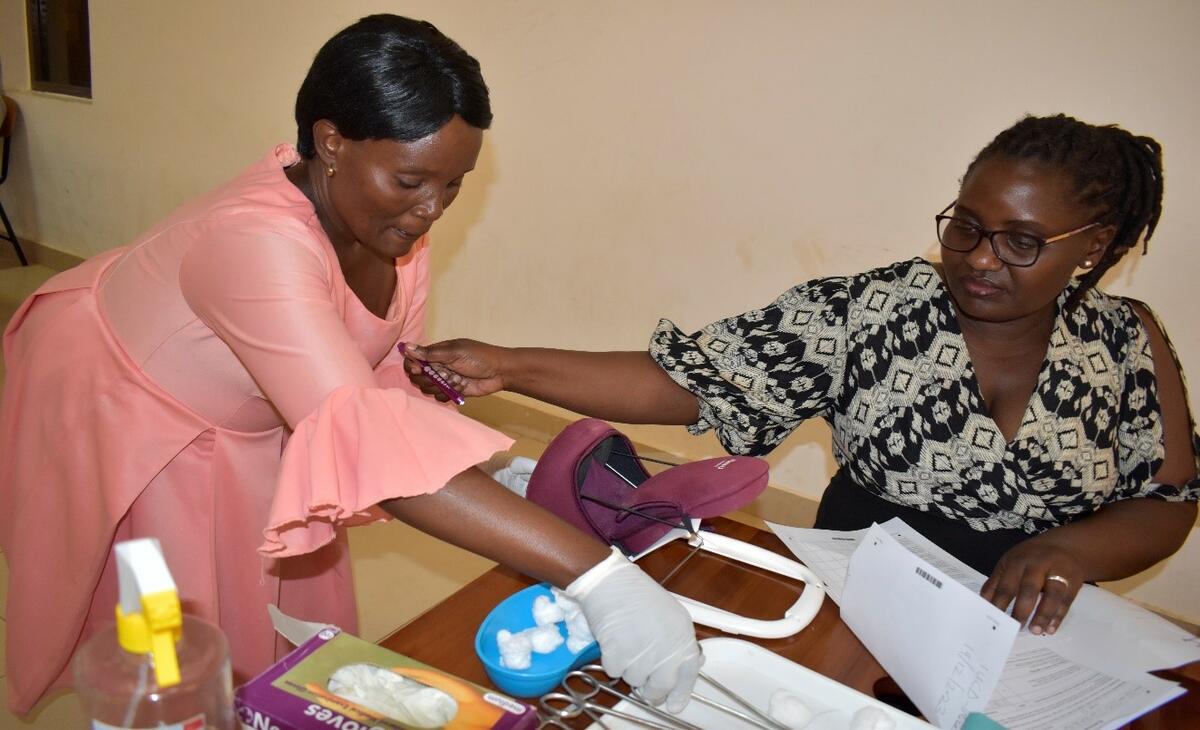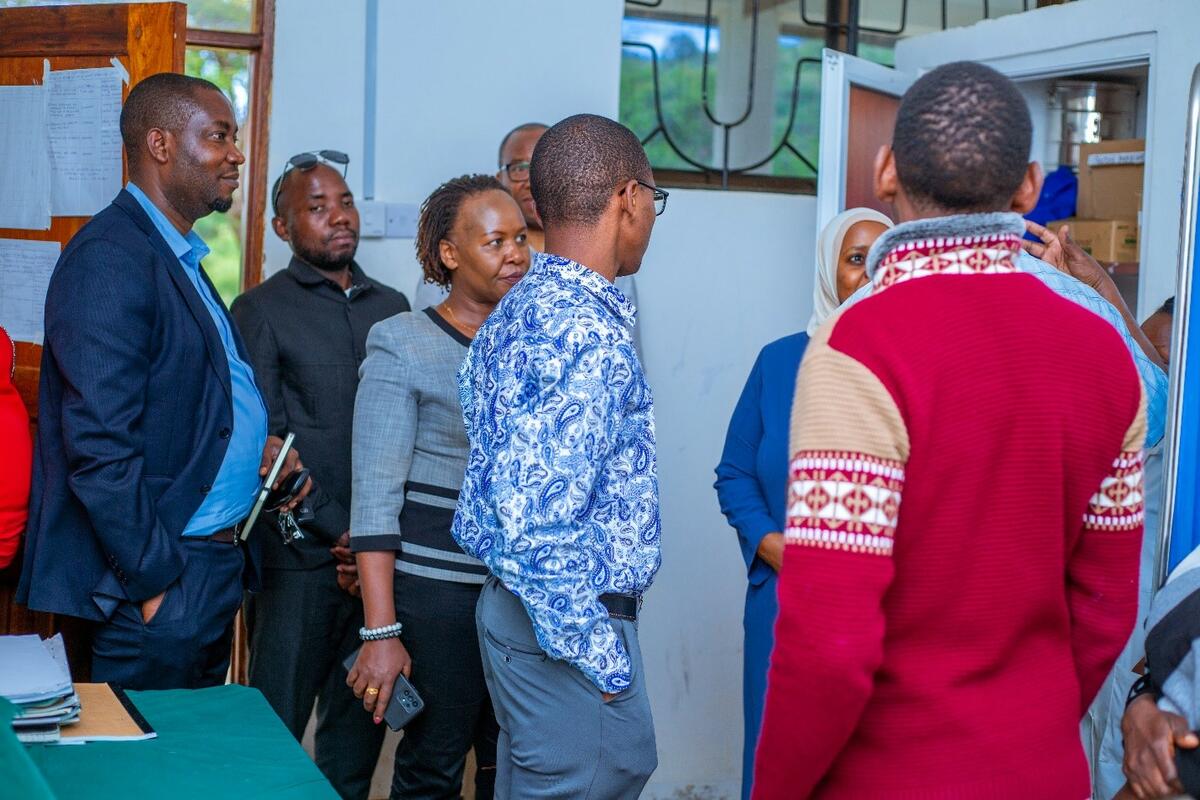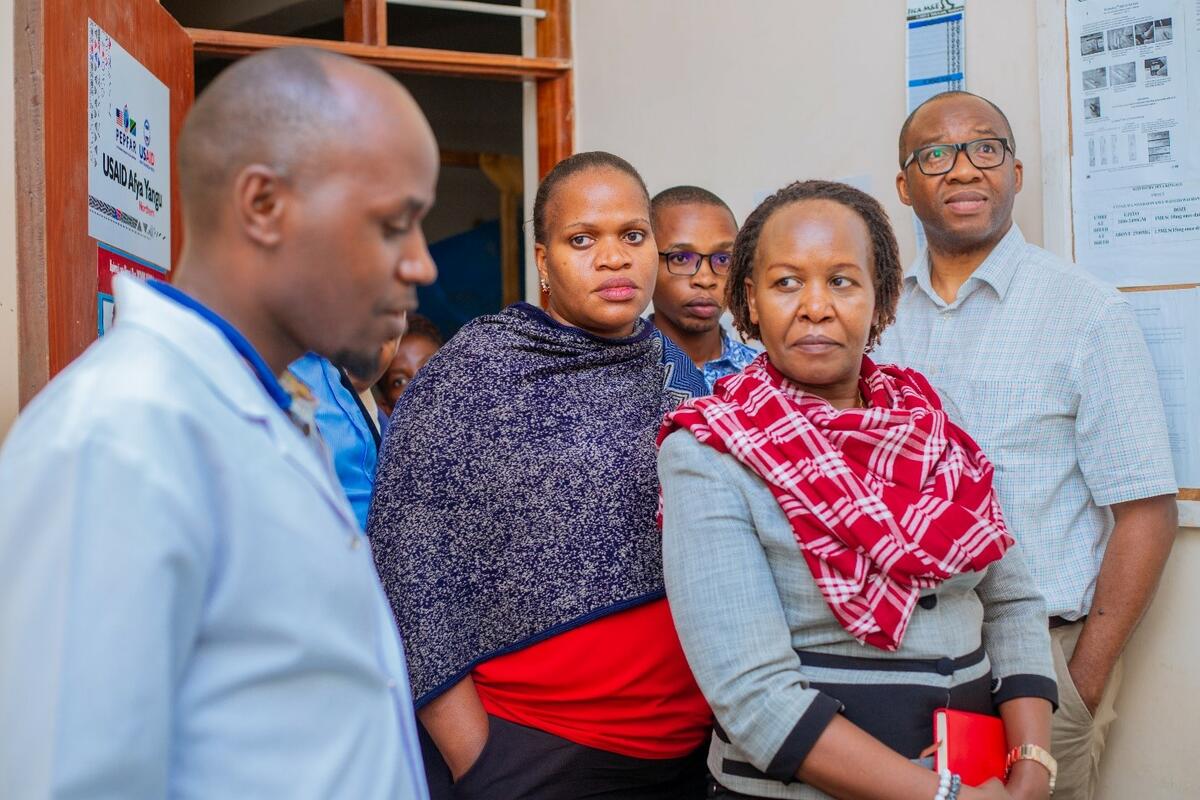"I have come here for delivery. The doctors have received me well, and I have experienced quality services."
These were the joyous words of Ashura Iddi; her story is one of many heartwarming accounts from service users who have experienced the tangible impact of the ‘Quality Improvement for Integrated HIV, TB, and Malaria Services during Antenatal and Postnatal Care’ project. Ashura's soft but confident voice carries a quiet power. Resting at Kingale Health Centre in Mpwapwa Town Council of Dodoma in Tanzania with her healthy newborn, she personifies the transformation in maternal health services made possible by this innovative project.

The project, funded by Takeda’s “Global CSR Program” through the Global Fund and implemented by the Liverpool School of Tropical Medicine (LSTM) and the University of Dodoma (UDOM) in Tanzania, has been transforming healthcare in Tanzania, especially in the Dodoma region. By training healthcare workers, improving standards of care, and mentoring programs, the project empowers healthcare providers to deliver exceptional services to their communities.
Empowering Healthcare Workers
The story of this transformation began with training healthcare workers, the unsung heroes. In 2023, 131 participants completed the antenatal and postnatal care (ANC-PNC) course, equipping them with essential skills for service delivery. Additionally, 20 healthcare workers were trained as ANC-PNC mentors and 202 healthcare workers were enrolled in the Quality Improvement in ANC-PNC Blended Learning course, and 90% of them completed all three phases of the blended learning mode component.

Beyond the numbers, the project has significantly improved the quality of antenatal and postnatal care. In just three quarters, there was a remarkable surge from a baseline of 78% to an impressive 82% of mothers attending postnatal care within 48 hours of delivery, paving the way for improved health outcomes for both mothers and their newborns. These advancements are a testament to the dedication and hard work of healthcare providers, who have embraced the training and resources provided by the project, giving women in Tanzania the right to a safe and respectful birth experience.
Acknowledging the Impact: Voices from the Field
In January 2024, LSTM and UDOM teams visited facilities benefiting from the project, including Kichangani Dispensary and Kingale Health Centre. During these visits, healthcare providers and medical officers in charge expressed appreciation for the project's impact in improving healthcare services.
Husna Mlay, a medical officer in charge at Kichangani Dispensary, expressed her gratitude for the project. "We thank you for the training and the equipment provided. We have improved compared to previous days. The trainers taught us competently, enabling us to recall and apply our training in practice." Husna's words show the project's success in equipping healthcare workers with the necessary tools to serve their communities.

A Brighter Future for Mothers
The transformation witnessed at Kondoa is beyond training and resources. It is a shift in the attitude and commitment of healthcare providers. Dr. Baraka Gelili, a medical officer in charge of Kingale Health Centre, spoke of the remarkable transformation he has witnessed. “Before this project, there was poor service,” he reflected. “But after this training, our healthcare providers are now very competent, with good attitudes when providing care.”

Dr Leonard Katalambula, Project Investigator from the University of Dodoma, expressed gratitude for the collaboration with the Liverpool School of Tropical Medicine and the Ministry of Health and acknowledged the positive changes he observed, including the innovative ways healthcare workers are using their training to enhance the quality of care.
"We appreciate the impact the project is making in improving the quality of health services. We have learned a lot about how the services are improving. We thank you for the collaboration with the Liverpool School of Tropical Medicine," Dr Katalambula expressed.

Prof. Charles Ameh from LSTM praised the partnership with UDOM and the Ministry of Health, noting how healthcare workers are implementing their training. He highlighted the improved communication, respectful maternity care, and innovative approaches to enhance quality care. "I was able to hear firsthand how healthcare workers are using their training to improve the quality of care," Prof. Ameh said. "They are using innovative ways such as grouping patients for mobile ultrasounds in areas without access to ultrasound machines, as well as utilising traditional birth attendants and health promoters to increase demand for services and improve quality of care through better communication and respectful maternity care."
The transformation story of Kingale Health Centre and Kichangani Dispensary gives us hope. It shows us how much progress can be made through partnership, training, and dedication to improve healthcare services. As this project continues to empower healthcare workers and improve standards of care, the future looks brighter for the people of Kondoa and beyond.
This is a story about the power of positive change when healthcare providers are equipped with the necessary skills and resources. By working together and making sustained investments in healthcare, we can create a world where high-quality care is accessible to everyone.
Authored by:
Anodi R. Kaihula, Manager- Tanzania Health Summit
Edited by:
Lalashe Kiretun, Project Coordinator, Quality Improvement for Integrated HIV, TB, and Malaria Services during Antenatal and Postnatal Care in Tanzania
Janice Njoroge, Development Communications Specialist, Mint Strategic Communications